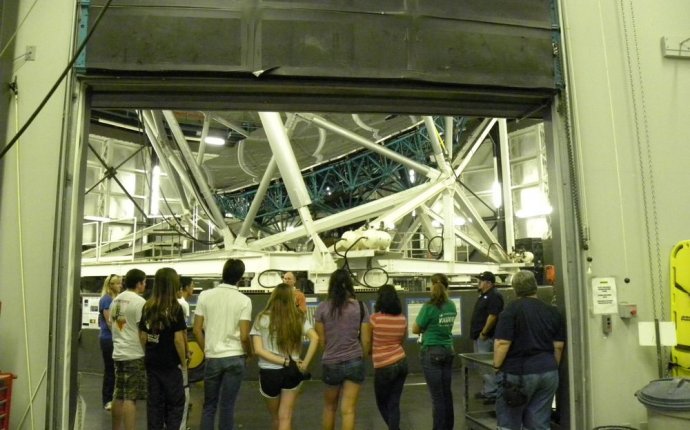
Astronomer in College
It is an exciting time to be studying astronomy. The astronomy news regularly reports on the existence and characteristics of exoplanets, the search for water on Mars, gravitational lensing of distant young galaxies, wildly energetic explosions of dying stars, attempts to detect particles of dark matter, space missions to asteroids or Pluto or the edge of the solar system, and on and on and on, from the tiniest particles and earliest moments of time to the large-scale structure of the universe as a whole.
Whitman has an Astronomy major and standard combined majors in Physics-Astronomy and Astronomy-Geology. There is also an Astronomy Minor. Students interested in graduate work in astronomy are encouraged to major in Physics-Astronomy or in Physics with an Astronomy minor, since most graduate schools look for some equivalent of an undergraduate degree in physics. Some students have also designed individually planned majors such as Astronomy-Mathematics or Astro(geo)biology. Astronomy graduates in recent years have gone on to graduate study at places such as New Mexico State University, the University of Wyoming, Colorado State, Dartmouth, and the University of Wisconsin - Madison. For more details about major and minor requirements, look at the college catalog.
Students can choose between two types of introductory courses, depending on their level of comfort with math and physical sciences. All of the introductory courses have a lab component; on clear nights, lab work includes using the department's 8- and 10-inch telescopes on the roof of the science building. Those students who have taken the more mathematically rigorous introductory courses may then take upper-division courses in Stellar Astrophysics, Galactic Astronomy, Cosmology, and Observational Astronomy, all of which are offered regularly in alternate years; Planetary Astrophysics or special topics (e.g., on globular clusters) are offered somewhat less often. Students with an interest in history and philosophy may be interested in taking Finding Our Place in the Universe, a course in the history of cosmology. Several students each year also conduct research projects with faculty or undertake directed readings on topics of personal interest. The "Links and resources" tab to the left includes links to information about off-campus summer research opportunities and graduate study; for more information about department equipment, check the "Facilities" tab.











